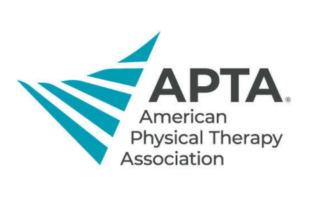The Alliance for Connected Care aims to:
Demonstrate the importance of Connected Care as a tool for improved quality and efficiency.
Build significant and high-level support for Connected Care among leaders in Congress and the Administration.
Enable more telehealth to support new models of care.
Lift geographic and site restrictions for telehealth in Medicare.
Establish a consensus-based, standardized definition of Connected Care to advance with policymakers.
Alliance News
Clinical Diabetes: A Qualitative Study of Adapting Telehealth Systems for Specialty Diabetes Care Across Four California Medical Centers
Clinical Diabetes: A Qualitative Study of Adapting Telehealth Systems for Specialty Diabetes Care Across Four California Medical Centers Telehealth continues to play an important role in specialty diabetes care, but there are variations in how this care is delivered. Researchers interviewed clinicians and staff who provide diabetes care through telehealth across four University of California academic medical centers: UC Davis Health, UCSF Health, UCLA Health and UC San Diego Health. More information can be found in the press release. The study suggests several important strategies to improve telehealth operations: Dedicated staff support is essential to obtain data from patients’ [...]
The American Surgeon: Telemedicine in Acute Trauma Care
The American Surgeon: Telemedicine in Acute Trauma Care This review examines articles with quantitative assessment of telemedicine’s impact in acute trauma care. The review found that telemedicine appeared to be preferentially used for more severely injured patients. Telemedicine may help abbreviate pre-transfer length of stay.
Psychotherapy Research: Cohort Study of Engagement in Telehealth Psychotherapy versus In-Person Services
Psychotherapy Research: Cohort Study of Engagement in Telehealth Psychotherapy versus In-Person Services This study aimed to compare patient engagement in in-person versus telehealth services in outpatient psychotherapy for mood and anxiety disorders. The study found a 26% increase in the total number of individual psychotherapy sessions attended when the clinics transitioned to telehealth services. In addition, patients who received telehealth psychotherapy were five times more likely to not cancel or miss any scheduled sessions. These results indicate that telehealth services may result in improved treatment engagement for outpatient centers focused on brief evidence-based psychotherapies for mood and anxiety disorders. [...]
Journal of Substance Use and Addiction Treatment: Comparison of 30-Day Retention in Treatment Among Patients Referred to Opioid Use Disorder Treatment from Emergency Department and Telemedicine Settings
Journal of Substance Use and Addiction Treatment: Comparison of 30-Day Retention in Treatment Among Patients Referred to Opioid Use Disorder Treatment from Emergency Department and Telemedicine Settings Telemedicine evaluations are feasible for people with opioid use disorder. People referred to an addiction treatment clinic following a telemedicine evaluation were more likely to show up to their first appointment than those whose referral resulted from an ER visit. More than half of telemedicine patients were engaged in treatment at 30 days.
Journal of Neurology: Performance and Clinical Outcomes in Telestroke Remain Robust During the COVID-19 Pandemic
Journal of Neurology: Performance and Clinical Outcomes in Telestroke Remain Robust During the COVID-19 Pandemic Telemedical stroke networks have shown positive results for patient outcome in rural areas without stroke expertise. This study found that well-established telestroke networks can overcome unexpected critical challenges such as a pandemic, guaranteeing best practice stroke care in rural areas.




















